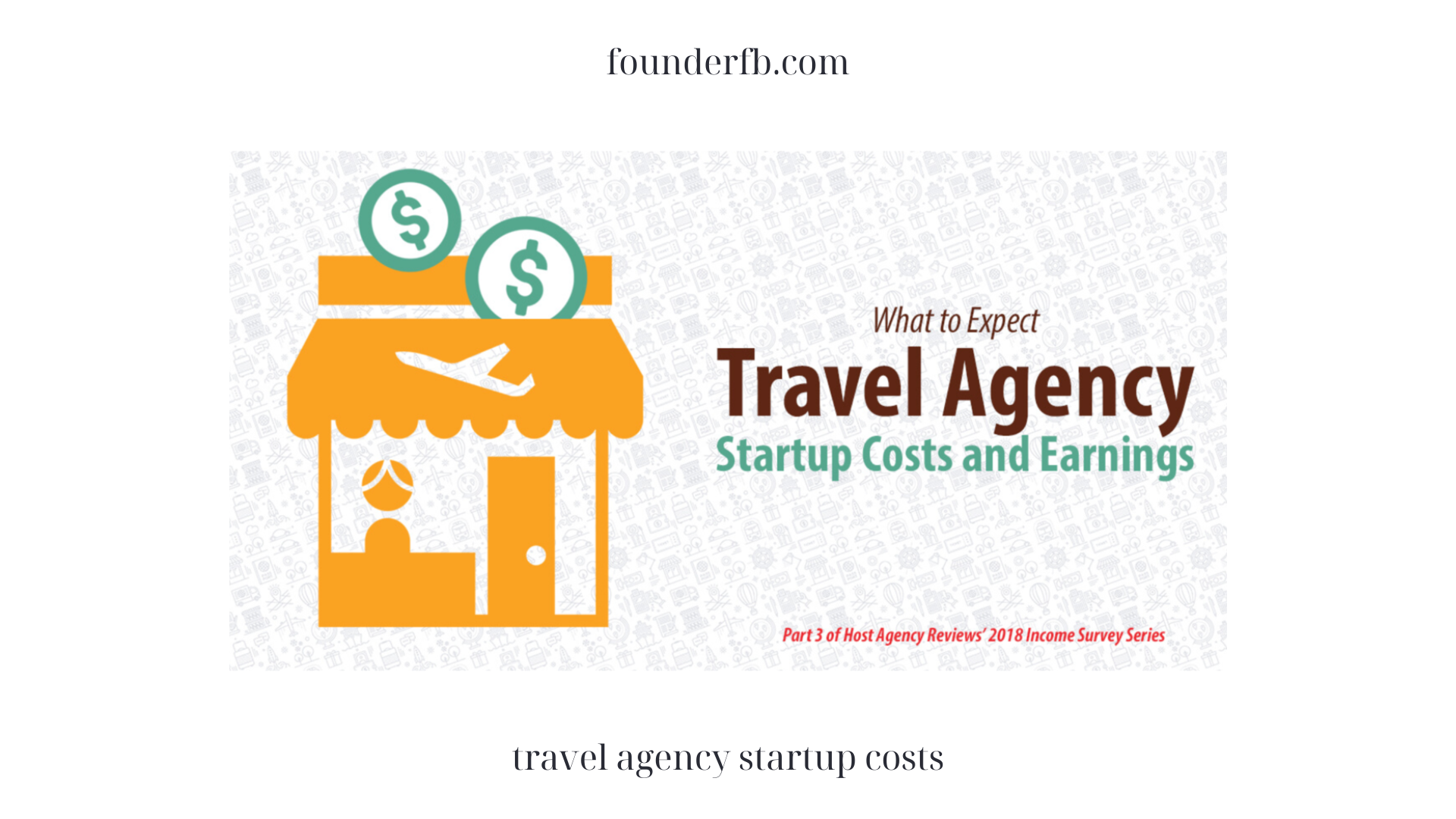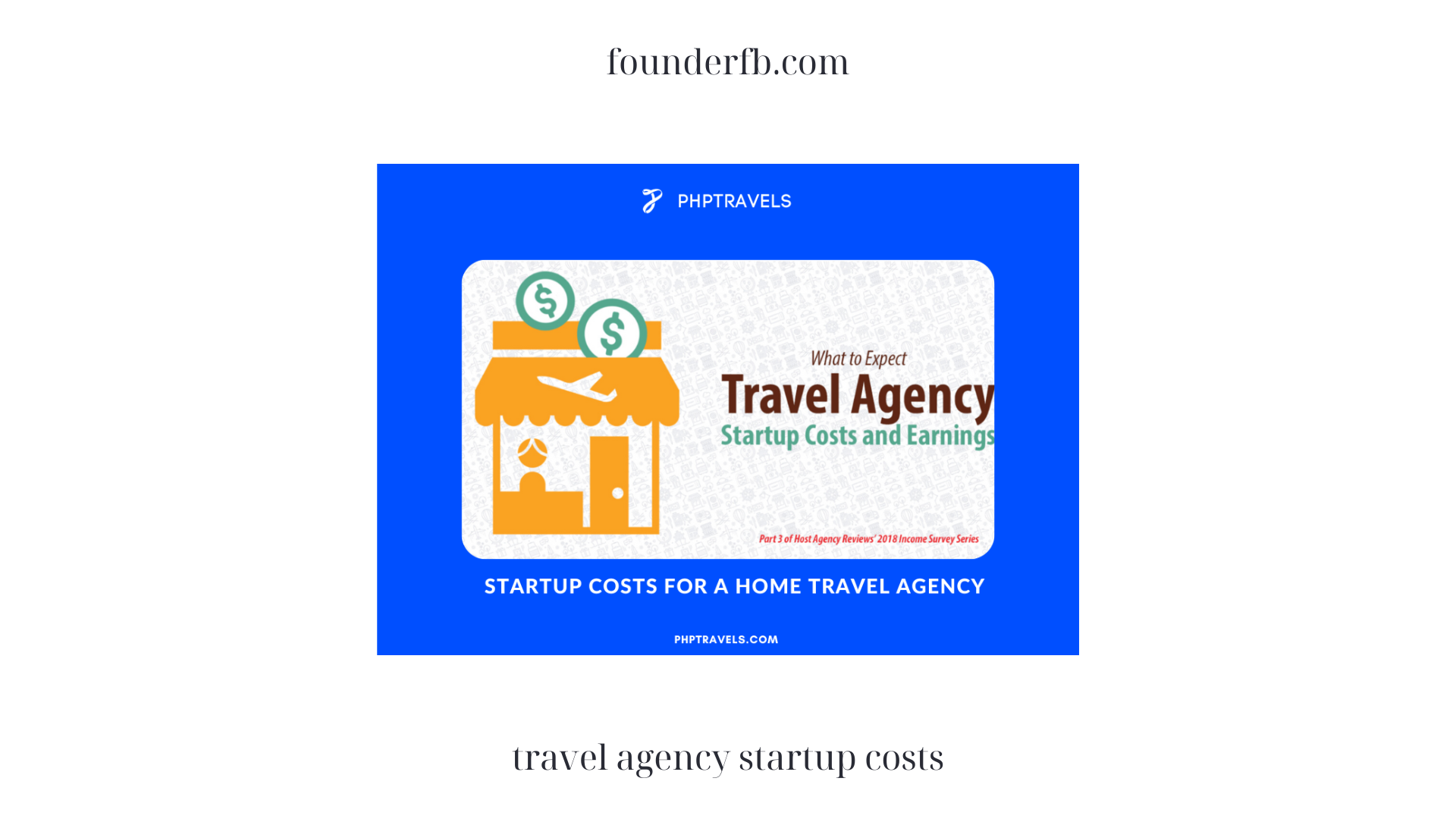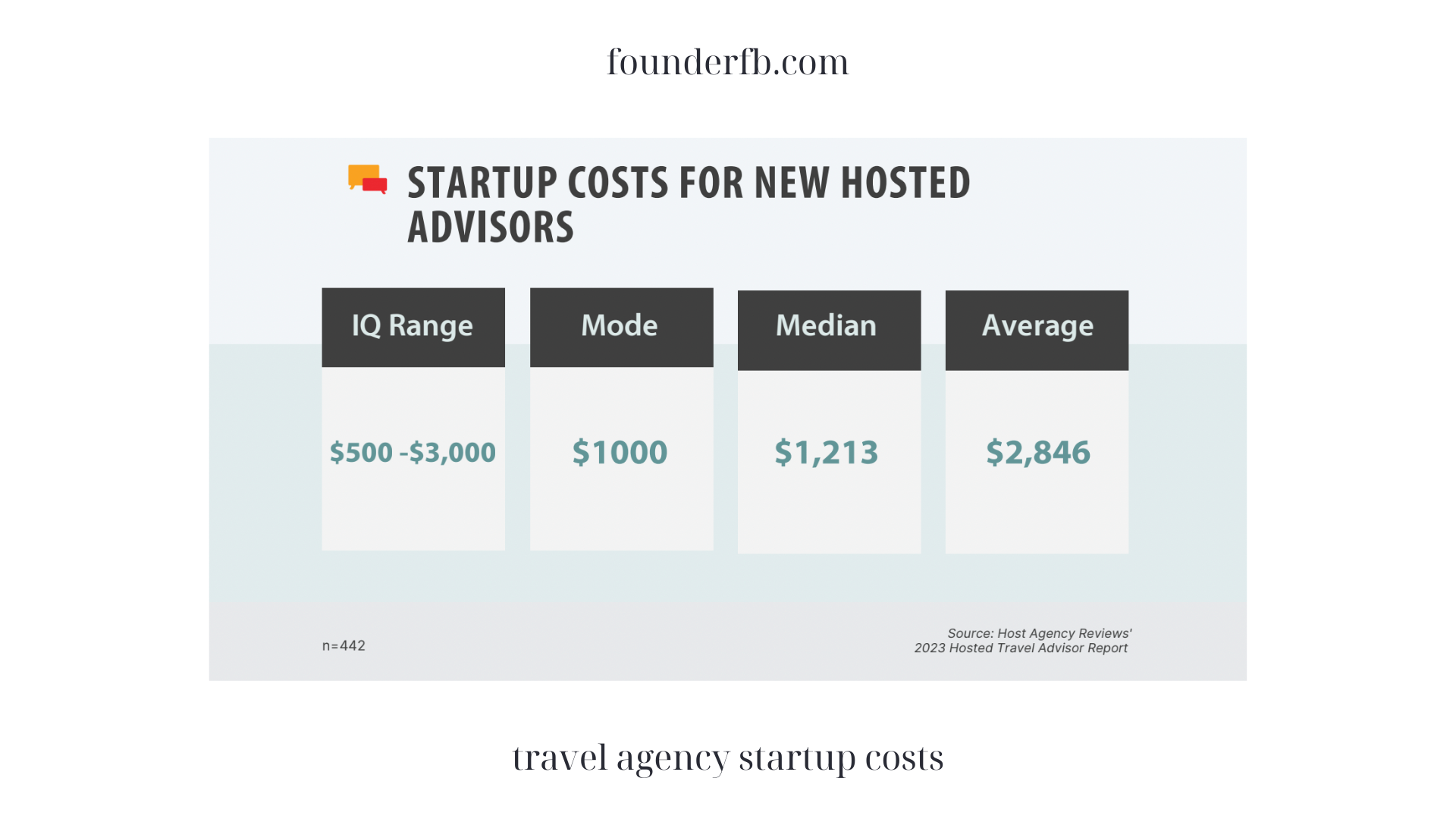Starting a travel agency can be an exciting venture for entrepreneurs passionate about the travel industry. However, like any business, it’s crucial to have a clear understanding of the startup costs involved. From licensing and technology to marketing and office space, there are various expenses to consider when launching a travel agency. This comprehensive guide by Founderfb aims to provide aspiring travel agency startup costs with valuable insights into the specific costs associated with starting a travel agency.
Travel Agency Startup Costs: A Comprehensive Guide for Entrepreneurs

Licensing and Legal Costs:
One of the first steps in establishing a travel agency is obtaining the necessary licenses and permits. The costs associated with licensing can vary depending on the location and the type of agency you plan to operate. It’s essential to research the specific requirements in your country or region and travel agency startup costs for the associated fees. Additionally, seeking legal advice to ensure compliance with regulations and contracts may incur additional costs.
Technology and Software Expenses:
In today’s digital age, technology plays a crucial role in the operations of a travel agency. Investing in the right technology and software solutions is vital for streamlining processes, managing bookings, and providing travel agency startup costs exceptional customer service. Costs may include purchasing or leasing hardware, such as computers and servers, as well as software licenses for reservation systems, customer relationship management (CRM) software, accounting tools, and website development.
Office Setup and Equipment:
Creating a professional and welcoming travel agency startup costs office environment is essential for a travel agency. You’ll need to consider the costs of leasing a suitable office space, including rent, utilities, and insurance. Additionally, budgeting for office furniture, equipment like desks and chairs, computers, printers, telephones, and reliable internet connectivity is crucial. It’s important to strike a balance between functionality and cost-effectiveness when setting up your office.
Staffing and Training Expenses:
Hiring and training competent travel agency startup costs members is a significant aspect of running a successful travel agency. The costs associated with staffing include salaries or wages, benefits, and training programs. It’s essential to invest in training to ensure that your employees are knowledgeable about travel destinations, booking systems, customer service, and industry trends. Providing ongoing training opportunities can help your agency stay competitive and deliver exceptional service to clients.
Marketing and Advertising:
To establish a strong presence travel agency startup costs in the market and attract clients, a travel agency needs to invest in marketing and advertising efforts. This includes creating a compelling brand identity, designing a professional website, implementing search engine optimization (SEO) strategies, and developing a robust social media presence. Other marketing expenses may include print materials, online advertising, attending travel trade shows, and partnering with local businesses or influencers to promote your agency.

Insurance and Risk Management:
Travel agencies often travel agency startup costs sensitive customer information and make bookings involving significant financial transactions. It’s crucial to protect your business and clients by investing in appropriate insurance coverage. This may include professional liability insurance, general liability insurance, and cybersecurity insurance. The costs of insurance premiums will depend on factors such as the size of your agency, the services offered, and the coverage limits.
Membership and Affiliation Fees:
Joining professional associations and travel agency networks can provide numerous benefits, including access to supplier networks, training resources, and industry events. However, these memberships often come with associated fees. Researching and budgeting for these costs is essential, as the advantages of membership can greatly contribute to the success and credibility of your travel agency.
Operational Expenses:
Running a travel agency startup costs involves various day-to-day operational expenses that should be accounted for in your startup budget. These expenses may include office supplies, communication costs (phone, internet, and email), accounting and bookkeeping services, business insurance, and professional fees for legal or financial advice. It’s important to create a detailed list of operational expenses to ensure that you have a clear understanding of the ongoing costs your agency will incur.
Contingency Fund:
In business, unexpected expenses travel agency startup costs can arise, and having a contingency fund is crucial for financial stability. It’s advisable to set aside a portion of your startup budget as a contingency fund to cover unforeseen costs or to sustain your agency during the initial months when revenue might be limited. Having a safety net can provide peace of mind and allow you to navigate any challenges that may arise more effectively.

Ongoing Maintenance and Upgrades:
As your travel agency grows, it’s important to allocate funds for ongoing maintenance and upgrades. This includes keeping your technology systems up to date, investing in staff training and development, refreshing your marketing strategies, and continuously improving your customer experience. Staying current with industry trends and adapting to changing customer preferences will require ongoing investment in your agency’s infrastructure and resources.
In conclusion, starting a travel agency startup costs requires careful planning and budgeting to account for the various expenses involved. From licensing and legal costs to technology investments, office setup, staffing, marketing, and ongoing operational expenses, entrepreneurs must consider a wide range of factors when estimating their startup costs. By creating a comprehensive budget and exploring cost-saving strategies, aspiring travel agency owners can increase their chances of success in this dynamic and rewarding industry.



